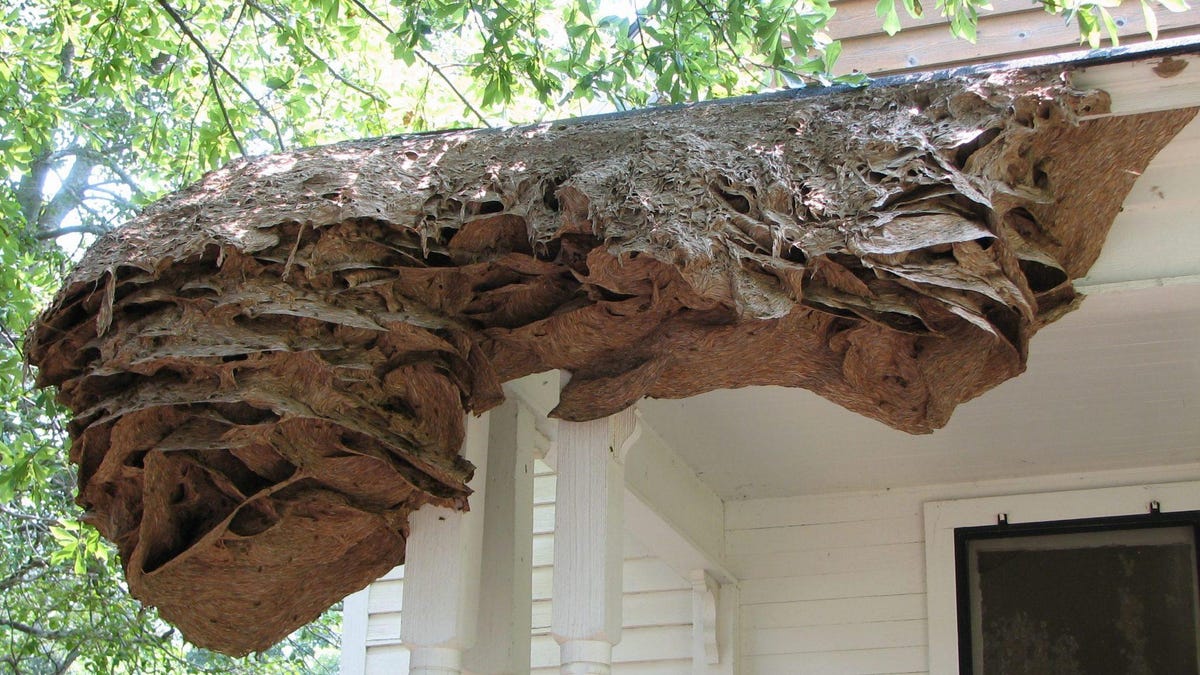Wasp super-nests hosting 15,000 insects are here to haunt your nightmares
Yellow jackets are celebrating the warm weather and abundant food in Alabama by building massive nope-nests.
Bees are our buddies. Yellow-jacket wasps, not so much. The stingy aggressive flying insects aren't doing much to help their reputation as the jerks of the bug world by building huge nests the Alabama Cooperative Extension Service (ACES) is calling "super nests."
ACES warns the nests can reach the size of a Volkswagen Beetle and host 15,000 wasps. Back in 2006, entomologist Charles Ray found more than 90 of these jumbo wasp condos in Alabama, and now 2019 is shaping up to be a banner year.
A yellow jacket nest fills up an abandoned car.
These perennial nests can come about after a mild winter during a time of food abundance. The colony stays strong through the winter, thrives in the warmer weather, and may even contain multiple queens.
"We have found them attached to home exteriors and other places you might not expect to find yellow jackets," Ray said in a recent ACES release.
The reports of giant nests are coming in earlier this year than in 2006, sparking concern there could be a large number across the state.
Last week, ACES followed up its original super-nest warning with more details on the wasps, saying yellow jackets are responsible for almost all stinging deaths in the US. A single wasp can sting a person multiple times, and stings can trigger life-threatening allergic reactions in some.
Ray asked anyone who finds a giant nest to contact him. He warns against disturbing the nests and urges people to hire a licensed commercial pest-control operator for removal.
Also, just keep repeating this mantra to yourself: nope, nope, nope, nope.


